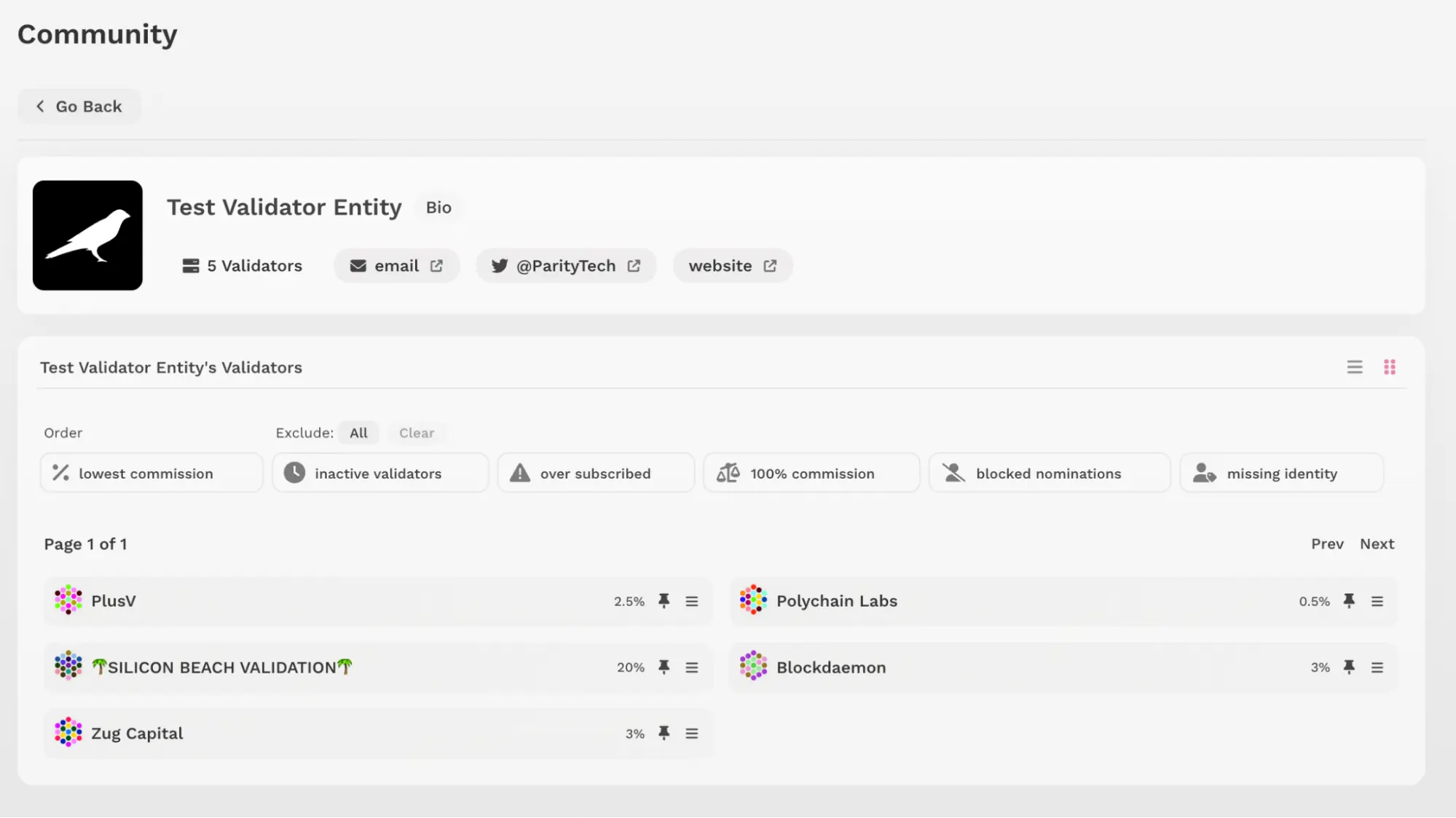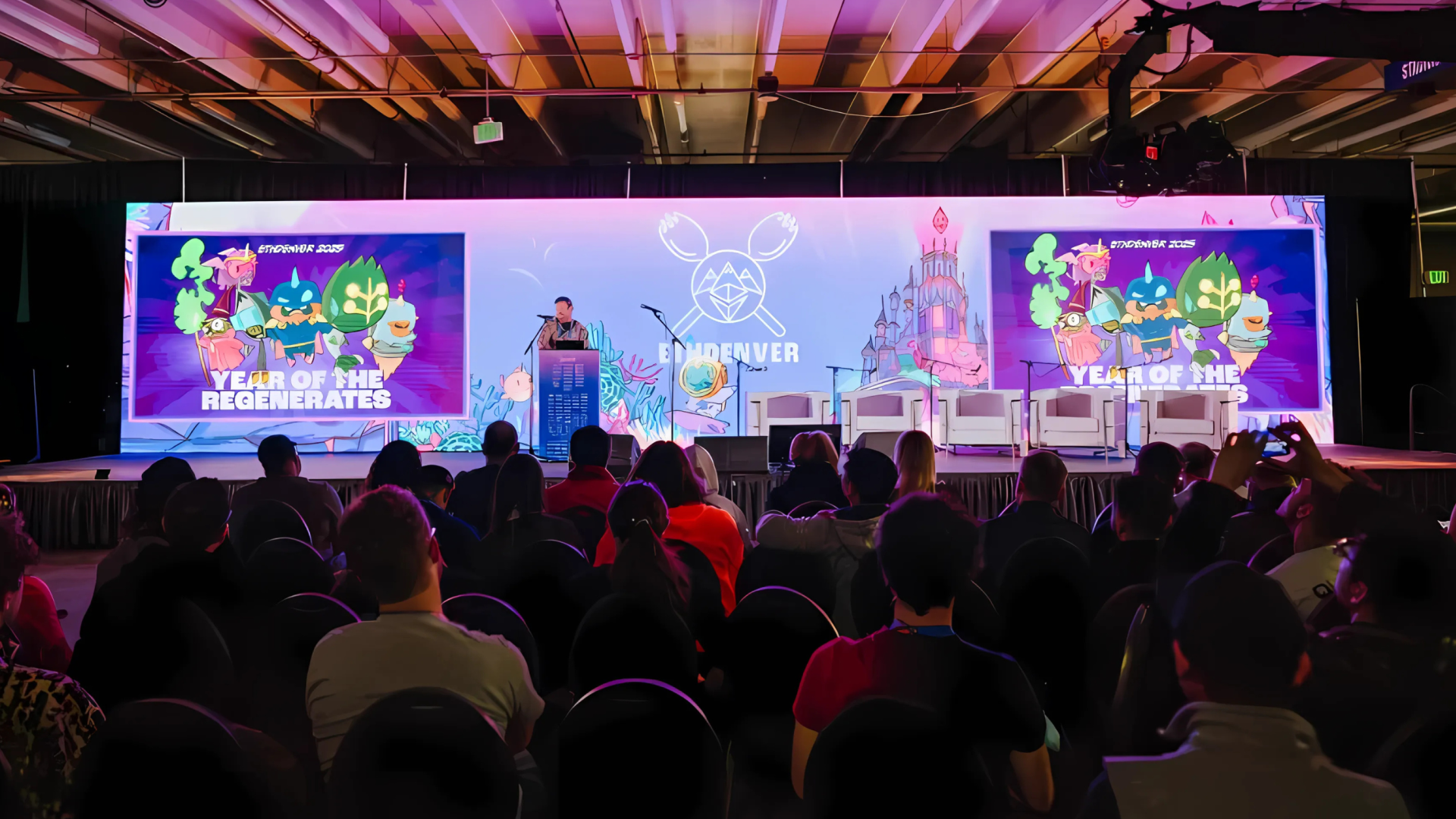Staking Update: June-July 2022
Updates to the Polkadot and Kusama staking systems for the months of June and July, 2022. Featuring a new validator community page on the staking dashboard.
 By Polkadot•August 1, 2022
By Polkadot•August 1, 2022
Staking at Polkadot Decoded
The biggest Polkadot event of the year happened in multiple locations worldwide in late June, and there were 3 main talks discussing the cutting edge initiatives of Polkadot staking.
The recordings of these talks are now publicly available on Youtube
- Nomination Pools and The Story of The Polkadot's NPoS by Kian Paimani
- Polkadot Staking Dashboard Demo by Ross Bulat
- Recommending Validators Using an Active Learning Algorithm by Jonas Gehrlein
Nomination Pools Bug Fixes Update
A number of bugs were found in nomination pools during their test-run on Kusama — all of which have now all been fixed in Substrate master and are awaiting to be deployed on Kusama again, proposed for the next release.
The most notable of these bugs are:
- https://github.com/paritytech/substrate/pull/11746
- https://github.com/paritytech/substrate/pull/11669
Once a release, including these two, is merged and working well on Kusama for some period of time, we can propose that governance merge the pending pull request to add nomination pools to Polkadot.
To facilitate those who are interested in building on top of nomination pools:
- There’s a dedicated github project for nomination pools now.
- There’s a dedicated element room for support and discussion.
Notable Contributors
- A custom runtime API to fetch the pending rewards of a member in a pool by an external contributor. This can also be used over the RPC by wallets.
- More efficient re-bonding of unclaimed rewards.
Thinking about contributing? Look for issues in the Substrate repo with the mentor tag, or the NPoS and Elections project, or the new Nomination Pools project. All successful contributions will get an on-chain tip initiated by the Parity staking team.
Also, if you are interested in contributing long-term, there’s a “Staking / PoS Engineer” position available at Parity Technologies, targeting exactly those who will contribute to the staking system.
Staking Dashboard Updates
Validator Community Page Now Live: Add Yours Now!
The Polkadot staking dashboard recently launched on Polkadot.network and is already generating thousands of visits each week. With this in mind, we would like validators to benefit from this new app and the potentials it is unlocking as early as possible.
We are taking our first steps towards doing so today.
We are excited to announce that validators can now utilize the dashboard and add themselves to the new community page.
The community page is a new initiative to promote the visibility of not only validator nodes, but the entities and individuals behind the nodes that ensure their uptime and maintenance.
We are referring to these crucially important validator operators as “validator entities”.

If you run validators on Polkadot, you are eligible to add your entity. Let’s explore entities in more detail.
About Validator Entities
As a validator entity, you can host:
- A custom avatar to reflect your identity and brand
- Contact details: currently supports an email address, twitter handle and website URL
- A short bio of who you are, limited to 300 characters or less.
- And, crucially, a list of validator nodes that you are managing.
The entity details will appear on the community page. The entity’s bio can be opened in an overlay, and the list of validators are displayed by clicking the entity’s Validators button.
Clicking the Validators button will open a subsection of the page that only displays details for that particular entity:

This list of an entity’s validators uses the same components used in the main validator list, with pagination, filters, identity syncing, favorite toggling, and metrics all supported; there are no compromises with validator entity lists.
Entity Setup Instructions
To add your entity, just submit a PR on the staking dashboard’s Github repo. Within your PR, simply provide an avatar SVG and add your details to a JSON file.
Detailed instructions on how to add a validator entity are documented in the dashboard’s Readme document on Github, found here.
Ensuring Fairness
Validator entities are shuffled every time someone visits the dashboard, so there is no preference or bias towards a particular entity.
In addition, the validator nodes themselves are shuffled every time they are visited, for the same reasons.
Next Steps
With this month’s update the aim is to spread the word of this new feature, hoping that a vibrant list of validator entities will be added in the near future.
We are keen to expand the community page itself with ordering and filtering functionality as adoption increases.
As always, feedback and suggestions are always welcome. You can easily post feedback on the Feedback section of the dashboard.
Lastly, reach out to Ross for additional assistance at ross@parity.io











